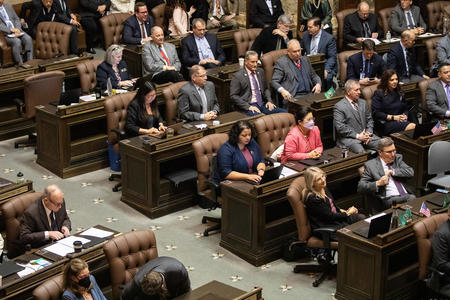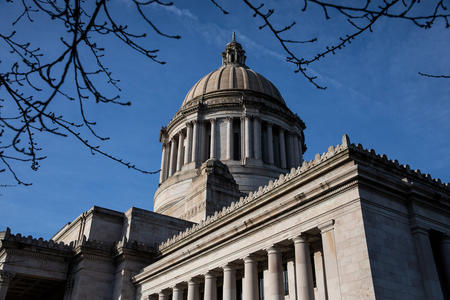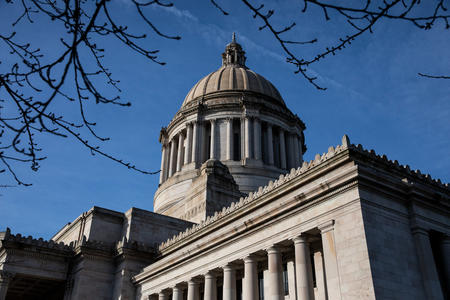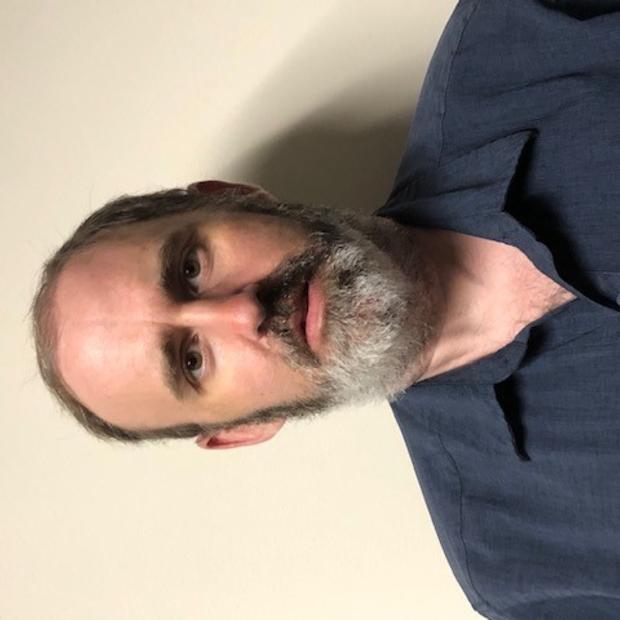Senate Bill 5536, one of the last bills debated in the 105-day legislative session, failed 43-55 in the Democratic-controlled House. Several Democratic lawmakers voted against the bill, and not a single Republican supported the compromise from House and Senate Democrats.
The collapse of legislation after two years of difficult negotiations was a bitter turn for Democrats, who were set to celebrate a host of big wins secured in recent weeks: a package to ease the housing crisis, increased education funding, new dollars for a host of climate projects and new restrictions on firearms.
“I’m flummoxed, I’m flummoxed,” said House Speaker Laurie Jinkins, D-Tacoma, shortly after the vote. Jinkins blamed the failure on House Republicans for not getting behind a deal before the existing law passed as a temporary measure. That temporary law sunsets in July.
“Their failure to provide any votes for this bill is going to result in methamphetamines, fentanyl, heroin being legalized, and the possession of those drugs, across the state of Washington,” Jinkins said.
House Republicans had warned for weeks that they didn’t support the House Democrats’ approach. They backed a version passed earlier this year in the Senate, with higher penalties for drug possession. With their objections not satisfied, several GOP House lawmakers said during the final debate that they preferred to see the bill fail, which would allow local governments in their districts to pass their own drug laws.
This sentiment was echoed by the Washington Associations of Sheriffs and Police Chiefs. In a statement Sunday evening, the association said it supported the earlier Senate version of the bill, which included a gross misdemeanor penalty, which is considered “a balanced approach to incentivize those found in possession of drugs to successfully complete treatment.”
“Local governments will have the ability to enact policies and ordinances for their communities to break the cycle of drug abuse, provide help to individuals in need, and take back our public spaces,” the statement said.
In his end-of-session news conference Sunday night, Gov. Jay Inslee said lawmakers must find a fix before July, which will mean calling a special legislative session sometime in the coming weeks to pass any compromise reached.
“It is unacceptable to me, it is unacceptable to the state of Washington to decriminalize drugs,” Inslee said, standing alone instead of being flanked by Democratic lawmakers touting their wins at the end of the year. “We expect the Washington state Legislature to produce a bill that will not decriminalize drugs, will provide measures for treatment and will provide some sanction for those who fail to accept treatment.”
The Washington Supreme Court’s Blake decision in 2021 invalidated decades of criminal convictions and related penalties. Lawmakers have been trying ever since to find a compromise solution.
Conservative Republicans would like to see the return of a felony statute, while the most progressive Democrats favor decriminalization. The broad middle favors some sort of criminal penalty less severe than a felony, such as a gross misdemeanor. Figuring out how to ramp up substance-use treatment programs adds another layer of complexity to the debate.






